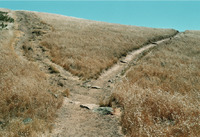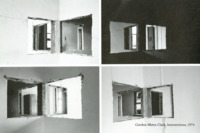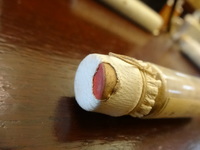Items
Site
The Medicine Chest
keywords is exactly
intersections
-

Or
"The processes of digression and diversion have much in common with what the writer Ross Chambers (1999) calls ‘loiterature’. Chambers investigates the digressive, category-blurring genre of writing found in works such as Nicholson Baker’s 'The mezzanine', Paul Auster’s 'City of glass' and Laurence Sterne’s 'Tristam Shandy'. Loiterly writing, according to Chambers, disarms criticism by providing a moving target, shifting as its own divided attention constantly shifts. Criticism depends on the opportunity to discriminate and hierarchise, determining what is central and what is peripheral (Chambers 1999: 9), which this form eludes by resisting contextualisation or singular categorisation. Loiterature promotes sites of endless intersection, where attention is always divided between one thing and some other thing, always willing and able to be distracted, contrasting ‘the disciplined and the orderly, the hierarchical and the stable, the methodical and the systematic’ (Chambers 1999: 10). In contrast to methods of science that seek to stabilise objects within taxonomic systems or that require the formulation of hypotheses to provide direction for experimentation and a basis for concrete outcomes, the processes of curatorship and artmaking revel in rerouting and redirecting and in diversion and digression" (Liebenberg 2021: 286). -

Intersections
"In recent years, particular interest has been directed at the resulting cross-pollinations and hybridities in the treatment of illness and disease that developed during the colonial and precolonial period from this heterogenous mix of cultures. Karen Flint’s 'Healing Traditions' (2008) and Digby’s 'Diversity and Division in Medicine' (2006) suggest that a complex structure of complementarity existed in which overlapping forms of health care had permeable and shifting boundaries (Digby 2006: 33; Flint 2008:7) illustrated perhaps most succinctly in the particularly porous field of botanical medicine, which almost all cultures utilised in their treatments to some extent" (Liebenberg 2021: x). -

Wounds
A wounded bottle in Special Collections, BC666, UCT


